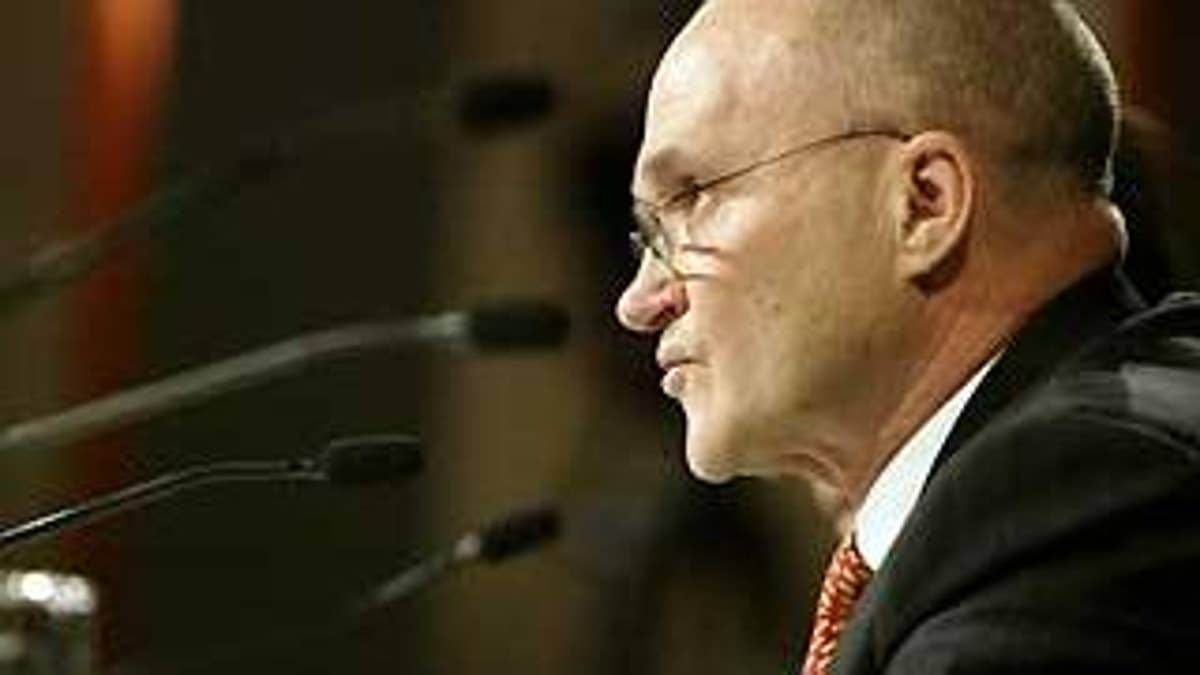
The New York Police Department is looking for ways to disrupt cell phone calls and other forms of electronic communication among terrorists in the event of another terror attack in New York, Police Commissioner Raymond Kelly says.
The need to disrupt communications is one of several conclusions that the NYPD has drawn from studying the November attack in Mumbai, India, a three-day rampage by machine gun and grenade-wielding Islamic militants in which at least 165 people were killed and 304 were wounded.
Kelly is scheduled to discuss this and other "lessons learned" in testimony Thursday before the Senate Committee on Homeland Security and Governmental Affairs. A draft copy of his statement was shared with FOX News in advance of his appearance.
Kelly stressed the need for law enforcement to be able to disrupt cell phone calls and other communications during an attack, pointing to threats posed by the media when they disclose law enforcement tactics during live coverage that can get passed back to the attackers.
Kelly says that in the Mumbai attack, the terrorists' handlers used cell phones and other portable communications devices to order the killing of hostages and to adjust other tactics while the attacks were underway.
It's not clear from his testimony whether the NYPD has the means to disrupt electronic communications for a small group of terrorists without shutting down cell phone service to a large part of Manhattan.
The NYPD has also been at odds with the Justice Department over its attempt to get the federal government to loosen up a law governing electronic surveillance. Under the Foreign Intelligence Surveillance Act, or FISA, warrants must be obtained to begin electronic monitoring of terror suspects, and the requests go through a multi-layered vetting process by the FBI and the Justice Department. Kelly is asking for these agencies to expedite NYPD's requests to be able to combat fast-moving terror situations.
Kelly's testimony also warns that although New York has adopted the most robust counterterrorism programs of any city in the nation and has received considerable assistance from the Coast Guard, police still "cannot fully protect New York's harbor" given the vast amount of uninspected cargo that enters the Port of New York and New Jersey each day.
As a result, Kelly says he has continued to highlight the "urgent need" for better port and maritime security. "We are mindful that the attackers approached Mumbai from the water," his statement reads.
The 36,000-member NYPD, the nation's largest city police force, has already changed some procedures and conducted new drills in response to vulnerabilities identified by a three-member NYPD counterterrorism team that visited Mumbai three days after the attack in India's financial center ended. The three senior officers, members of the department's program that stations detectives in 11 cities overseas, toured Mumbai's crime scenes, took photographs and asked questions of their Indian police counterparts.
A key observation, Kelly says, was that the attackers seemed more familiar with the hotels they assaulted than the police who were called in to respond.
As a result, Kelly says, the NYPD began touring several major New York hotels in early December, "documenting the walkthroughs on video camera, filming entrances and exits, lobbies, unoccupied guest rooms, and banquet halls." The videos will be used as "training tools" for other officers, he says.
Another change, initially reported by The New York Post, is the decision to ensure that more police officers are trained to use machine guns and other heavy weapons. In mid-December, for the first time, recruits at the police academy received basic instruction in the operating systems of three types of heavy weapons. Prior to this, the testimony says, only the Police Department's Emergency Service Unit was given such training. Now it will become a standard feature at the police academy.
On Dec. 5, the NYPD also conducted two exercises -- a tactical drill for Emergency Service Unit officers and a tabletop exercise for commanders. Both scenarios were based on the attacks in Mumbai, Kelly says.
Since the 9/11 attacks, New York City has invested heavily in counterterrorism, devoting some 1,000 officers to the effort. The department has installed advanced radiation detection devices at all points of access to the city's five boroughs, including roads, bridges, tunnels and waterways.
Through its Operation Nexus, NYPD detectives have visited thousands of the companies that terrorists might seek to exploit, Kelly says, including truck rental companies and hotels. "We let them know what to look for and what to do if they observe suspicious behavior," he says.












































